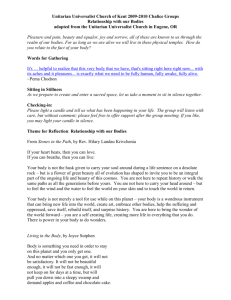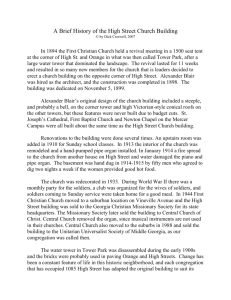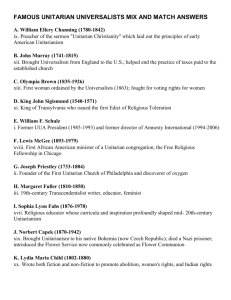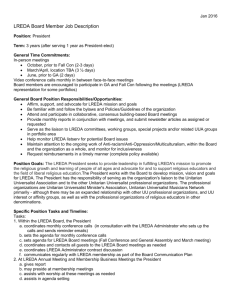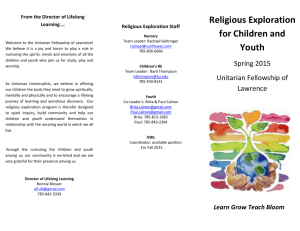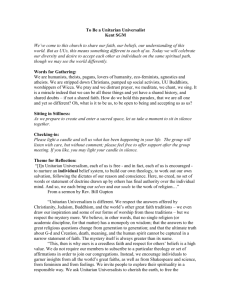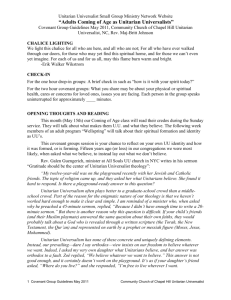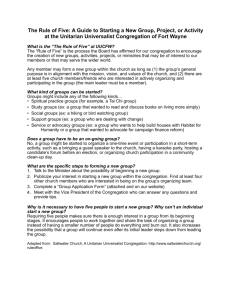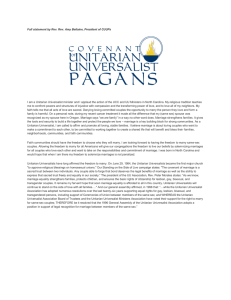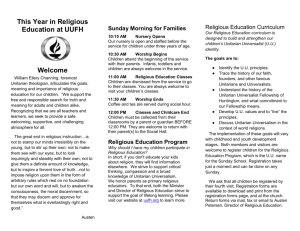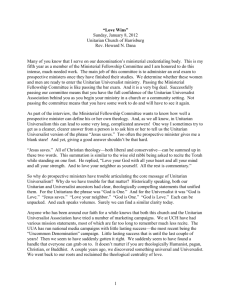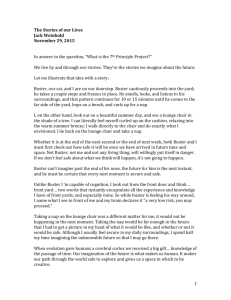Religious Education - Canadian Unitarian Council
advertisement
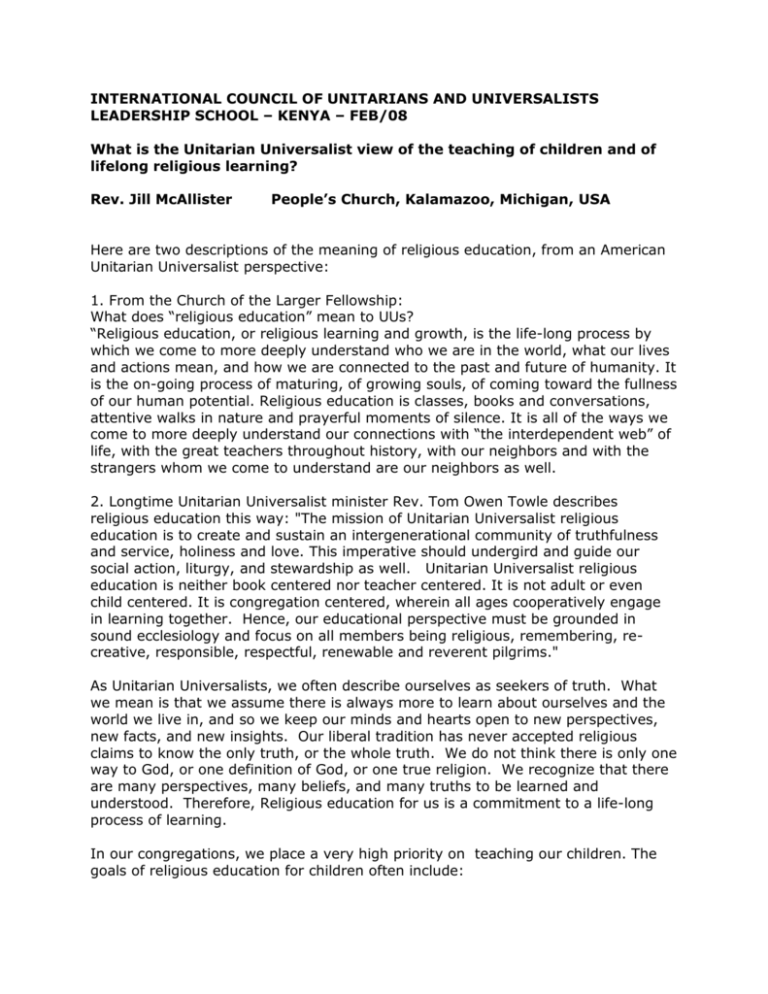
INTERNATIONAL COUNCIL OF UNITARIANS AND UNIVERSALISTS LEADERSHIP SCHOOL – KENYA – FEB/08 What is the Unitarian Universalist view of the teaching of children and of lifelong religious learning? Rev. Jill McAllister People’s Church, Kalamazoo, Michigan, USA Here are two descriptions of the meaning of religious education, from an American Unitarian Universalist perspective: 1. From the Church of the Larger Fellowship: What does “religious education” mean to UUs? “Religious education, or religious learning and growth, is the life-long process by which we come to more deeply understand who we are in the world, what our lives and actions mean, and how we are connected to the past and future of humanity. It is the on-going process of maturing, of growing souls, of coming toward the fullness of our human potential. Religious education is classes, books and conversations, attentive walks in nature and prayerful moments of silence. It is all of the ways we come to more deeply understand our connections with “the interdependent web” of life, with the great teachers throughout history, with our neighbors and with the strangers whom we come to understand are our neighbors as well. 2. Longtime Unitarian Universalist minister Rev. Tom Owen Towle describes religious education this way: "The mission of Unitarian Universalist religious education is to create and sustain an intergenerational community of truthfulness and service, holiness and love. This imperative should undergird and guide our social action, liturgy, and stewardship as well. Unitarian Universalist religious education is neither book centered nor teacher centered. It is not adult or even child centered. It is congregation centered, wherein all ages cooperatively engage in learning together. Hence, our educational perspective must be grounded in sound ecclesiology and focus on all members being religious, remembering, recreative, responsible, respectful, renewable and reverent pilgrims." As Unitarian Universalists, we often describe ourselves as seekers of truth. What we mean is that we assume there is always more to learn about ourselves and the world we live in, and so we keep our minds and hearts open to new perspectives, new facts, and new insights. Our liberal tradition has never accepted religious claims to know the only truth, or the whole truth. We do not think there is only one way to God, or one definition of God, or one true religion. We recognize that there are many perspectives, many beliefs, and many truths to be learned and understood. Therefore, Religious education for us is a commitment to a life-long process of learning. In our congregations, we place a very high priority on teaching our children. The goals of religious education for children often include: Helping children know that they are important and loved, encouraging feelings of self-worth Encouraging a sense of the wonder of life Practicing respect for other people, for differences, for all living things, for the earth itself Clarifying moral, ethical and interpersonal values based on respect and compassion Teaching the histories and philosophies of Unitarians and Unitarian Universalists Exposing children to ideas of all the great world religions Teaching the importance and practice of service to others We also recognize the need for adults to learn and grow in their religious lives. Religious education for adults can incorporate the same goals listed for children, but taught and explored at a level appropriate for adults. In Unitarian Universalism, we recognize several different stages of growth and development from early childhood through adulthood, and we strive to teach in ways that are appropriate for each age. We also recognize that people learn in many different ways – some learn best by hearing, some by doing, some by seeing. We aim to help people learn in the ways that are most effective for them. Questions to consider in preparation for the conference: 1. How did you come to believe what you believe today? Who taught you or how did you learn? 2. What convinced you to change a belief you used to hold, but no longer hold? 3. What are the religious questions you are still seeking to understand in your own life? 4. What makes a person a good teacher in religious education? 5. If you were in charge of a religious education program for your congregation, what would be your highest priority?
